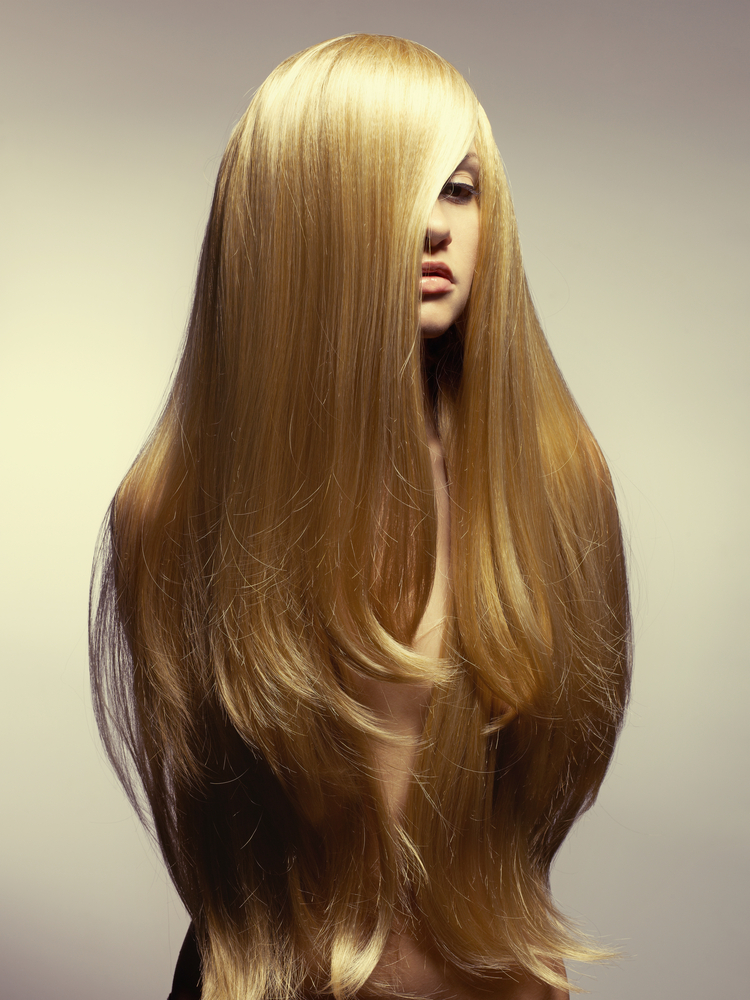Eating Right for Your Hair Type
What's one of the best-kept secrets for healthy hair?
As an "Informed Beauty" you probably will not be surprised that much of this is directly correlated to a healthy and balanced diet! It is fundamental that your grocery list contains the right mix of high quality protein, veggies, iron, and other non-inflammatory nutrients can help improve the health, look, and feel of your hair.
Healthy Hair: Protein Is King
Your hair needs a well-rounded intake both from the outside- and inside that provides all the recommended vitamins, minerals, and other nutrients. But it doesn't mean that when it comes to hair, all nutrients are equal, especially when it comes to protein.
A healthy body needs sufficient amino acids, and so does your hair. A strand of hair is composed of mostly protein, therefore it needs protein to grow. Protein creates a stronger hormonal and internal energy so your body can efficiently supply strong hair and nails. There are 22 amino acids that combine to form different proteins, and 8 of these must come from the foods we eat. Our body uses these amino acids to create muscles, blood, skin, hair, nails and internal organs. Proteins help replace and form new tissue, transports oxygen and nutrients in our blood and cells, regulates the balance of water and acids, and is needed to make antibodies.
The Phase of Your Hair Growth
At any given time, about 90% of your hair is in the growing phase. For each individual hair, this growing phase lasts 2 to 3 years. At the end of that time, hairs enter a resting phase that lasts about 3 months before they are shed and replaced by new hair. If you don't get enough protein in your diet, a disproportionate number of hairs may go into the resting phase.
On a normal scalp, there are about 120,000-150,000 strands of hair, and about 50 to 100 strands of that are shed each day. Most people don't even notice that small amount. If a large number of hairs enter the resting phase at the same time, hair loss can become very noticeable.
Many of our clients at Kasia Salon are busy mothers and working women. It is common to go through bouts of hair loss in ones life. We often recommend taking inventory of our guests stress levels and nutritional habits within a 3 month time period. If this is a problematic cause, it be reversed. By restoring protein to your diet, whether it comes from plants, such as beans and other legumes, or meat from animal sources, you can restore the normal hair cycle and stop the abnormal hair loss.
Iron and Other Nutrients
Protein isn't the only nutrient needed to maintain healthy hair. Iron, vitamin E, and trace minerals, such as selenium, copper, and magnesium to help keep your hair in good shape. These are all involved in the production of the various proteins that make up your hair.
Protein and Iron
Iron can make a very large impact on the health of ones hair. This is especially true for women (heavy menstral cycles) and vegetarians. Not getting enough iron, like not getting enough protein, can cause hair loss.
Where do you find the best source of iron in your diet? Meat The best sources of meat is a organic land ean meat, like fish and chicken.
Good vegetarian sources of iron include pumpkin seeds, white beans, lentils, and spinach. Keep in mind that iron from non-animal sources absorbs iron less efficiently from plants.
It is best to speak with your doctor about your diet and hair concerns. Your doctor can test the level of iron in your body to best determine whether or not you should consider taking an iron supplement.
Vitamin D and Your Hair
Another potentially important nutrient is vitamin D. Mirmirani says that though the evidence still isn't clear, some studies suggest that vitamin D may play a role in the hair cycle. "We can get vitamin D from the sun," Mirmirani says. "But dermatologists don't recommend a lot of sun exposure."
Dietary sources of vitamin D include fortified foods such as milk, orange juice, and cereals. But, Mirmirani says, according to some studies, many Americans aren't getting enough vitamin D. "And the actual recommended dosage is controversial," she says. As with iron, she recommends talking with your doctor about your vitamin D needs and whether or not you should take a supplement.
Are Hair Supplements Necessary?
It is true that any hormonal, nutritional, or vitamin deficiency will cause hair loss. All the vitamins are important, although a B-complex, C, and E are very beneficial. Getting the essentials is key and does not mean you need to buy special supplements for your hair.
Less stress, inflammation, and a balanced diet low in GMO grains is a promising return on your health and hair. Although it will not hurt, "beware of biotin" claims, as there hasn't been any good evidence that taking zinc or biotin supplements actually offers any benefits for hair.
Hair Health and Weight Loss Diets
All in the Balance
It is important to remember that just like our work-life, exercise, mind, relationships, and food....."balance" is key. A healthy diet, well-being, and the highest grade supplements is best for you, and your hair.
Kassandra Kuehl is the founder of Kasia Organic Salon. Kasia Organic Salon is the pioneer of healthy beauty that delivers results to fit your lifestyle, because only Kasia is the authority in 100% natural products & services. Visit www.kasiaorganicsalon.com and become an "Informed Beauty."
